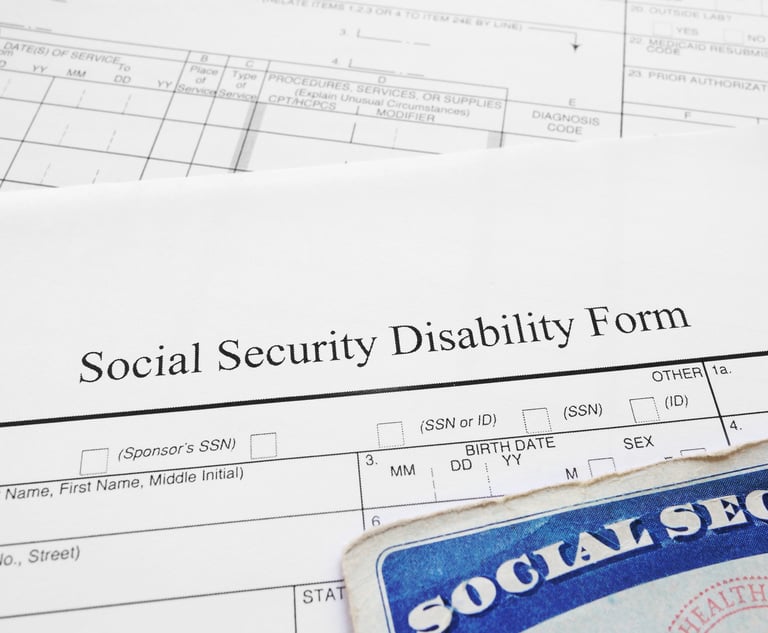Judicial Ethics Opinion 20-97
A district attorney is without authority to impose rules of procedure upon a court.
July 06, 2020 at 03:01 PM
6 minute read
The Advisory Committee on Judicial Ethics responds to written inquiries from New York state's approximately 3,600 judges and justices, as well as hundreds of judicial hearing officers, support magistrates, court attorney-referees, and judicial candidates (both judges and non-judges seeking election to judicial office). The committee interprets the Rules Governing Judicial Conduct (22 NYCRR Part 100) and, to the extent applicable, the Code of Judicial Conduct. The committee consists of 27 current and retired judges, and is co-chaired by former associate justice George D. Marlow of the Appellate Division and the Honorable Margaret Walsh, a justice of the Supreme Court.
Digest: A court must not be in the position of advocating a negotiated plea and, thus, must not distribute the District Attorney's "informational document" to defendant motorists or otherwise implement the DA's procedure for facilitating defendants' pleas to lesser charges in Vehicle and Traffic Law matters. The court may, however, distribute a court-prepared form impartially listing all options for a defendant motorist and include a link to the DA's website as a convenience to defendant motorists.
Rules: 22 NYCRR 100.1; 100.2; Opinions 20-99; 18-101; 17-34; 13-33; 12-68; 09-118; 08-11; 99-82; 93-58.
Opinion: A judge with supervisory authority over town and village justice courts notes the many impacts of current public health concerns involving the novel coronavirus (COVID-19). For example, the court system is limiting in-person appearances in certain courts and is promoting use of technology for court proceedings and appearances. Moreover, many prosecutorial agencies and courts have experienced significant staff reductions. Accordingly, the judge asks if the justice courts may "give the public … an effective way to complete their respective matters timely and safely" by distributing the District Attorney's "informational document" describing how a defendant motorist may seek a negotiated plea to a reduced charge without any personal appearances by the DA's office or the defendant. The document is printed on the DA's letterhead and directs the defendant to submit the "ticket" (accusatory instrument) and a copy of the defendant's department of motor vehicles "abstract" (i.e. conviction record acquired by the defendant from the DMV) "electronically" to the DA's office. The document further states that a letter from the defendant's "insurance company" stating that all property and personal injury damages have been paid in full is also required if an accident was involved. The defendant's submission will be reviewed and a "disposition letter" will be mailed to the defendant. The form then instructs the defendant to sign the disposition letter if he/she agrees to the offered plea and forward the signed disposition letter to the court with the "ticket." The form also states in bold font that "All questions about fines, penalties and adjournments must be addressed to the Court," and that "failure to follow these instructions exactly will result in no response," meaning that "the process will have to be started over again and your case will be delayed, possibly resulting in a suspended license."
Pursuant to the Rules Governing Judicial Conduct, a judge must act to preserve the judiciary's integrity and independence (see 22 NYCRR 100.1) and must always avoid even the appearance of impropriety (see 22 NYCRR 100.2).
We have repeatedly advised that a court must not "implement a procedure the District Attorney developed to facilitate defendants' pleas to lesser charges in traffic matters that would eliminate the need for the District Attorney or a member of his/her staff to appear in the judge's court" (Opinion 08-11; see also e.g. Opinion 93-58 ["A district attorney is without authority to impose rules of procedure upon a court"]). Moreover, we note the proposed form also improperly implies that the DA has control over any "delay" in disposition (i.e. adjournments, scheduling and case management), suspension of the defendant's license, and disposition authority, all of which of which are under the court's authority. Seen as a whole, these statements manifest an intrusion on the judiciary's independence and, if distributed by the court, would violate the court's obligation to uphold the independence of the judiciary. We thus believe it would be improper for the courts to implement the DA's procedure for facilitating defendants' pleas to lesser charges in Vehicle and Traffic Law matters by distributing the DA's informational document (see e.g. Opinions 13-33; 12-68; 08-11; 93-58).
We also note two additional closely related principles apply on the facts presented. First, "[a] judge should not be in the position of advocating a negotiated plea or in any way indicating a predisposition in the matter" (Opinion 17-34). Second, "[i]t is ethically impermissible for a judge or the judge's court clerk to distribute an informational packet the District Attorney has prepared to inform defendants how they may request a reduction of an alleged Vehicle and Traffic Law violation pending in the judge's court" (Opinion 12-68). Here, the proposed informational form violates both principles, as it was prepared by the DA's office and appears designed to encourage defendants to negotiate a guilty plea.
Our prior opinions recognize that the courts may, subject to significant limitations, develop and distribute documents to inform defendants charged with infractions, VTL violations and other minor offenses of all their options, including "the possibility of communicating directly with the district attorney, appropriate municipal attorney or other non-peace officer prosecutor for the purpose of negotiating a mutually acceptable disposition for submission to the court" (Opinions 08-11, quoting Opinion 99-82). Indeed, such a form already exists to notify defendants of all their procedural options in VTL matters in a neutral manner (see Opinions 20-99; 12-68 n2; 09-118). Thus, we conclude the court may distribute a court-prepared form impartially listing all options for a defendant motorist (see Opinions 20-99; 13-33; 99-82); and may also include a link to the DA's website as a convenience to defendant motorists (see Opinions 20-99; 09-118; 18-101).
We are not unsympathetic to the challenges facing prosecutors and courts in fulfilling their functions in the face of limited resources and an ongoing public health crisis. However, we see no reason to attenuate the judicial ethics standards designed to maintain the independence of the judiciary in these circumstances, absent superseding authority from a governmental entity with authority to promulgate such attenuation.
This content has been archived. It is available through our partners, LexisNexis® and Bloomberg Law.
To view this content, please continue to their sites.
Not a Lexis Subscriber?
Subscribe Now
Not a Bloomberg Law Subscriber?
Subscribe Now
NOT FOR REPRINT
© 2024 ALM Global, LLC, All Rights Reserved. Request academic re-use from www.copyright.com. All other uses, submit a request to [email protected]. For more information visit Asset & Logo Licensing.
You Might Like
View AllTrending Stories
- 1Call for Nominations: Elite Trial Lawyers 2025
- 2Senate Judiciary Dems Release Report on Supreme Court Ethics
- 3Senate Confirms Last 2 of Biden's California Judicial Nominees
- 4Morrison & Foerster Doles Out Year-End and Special Bonuses, Raises Base Compensation for Associates
- 5Tom Girardi to Surrender to Federal Authorities on Jan. 7
Who Got The Work
Michael G. Bongiorno, Andrew Scott Dulberg and Elizabeth E. Driscoll from Wilmer Cutler Pickering Hale and Dorr have stepped in to represent Symbotic Inc., an A.I.-enabled technology platform that focuses on increasing supply chain efficiency, and other defendants in a pending shareholder derivative lawsuit. The case, filed Oct. 2 in Massachusetts District Court by the Brown Law Firm on behalf of Stephen Austen, accuses certain officers and directors of misleading investors in regard to Symbotic's potential for margin growth by failing to disclose that the company was not equipped to timely deploy its systems or manage expenses through project delays. The case, assigned to U.S. District Judge Nathaniel M. Gorton, is 1:24-cv-12522, Austen v. Cohen et al.
Who Got The Work
Edmund Polubinski and Marie Killmond of Davis Polk & Wardwell have entered appearances for data platform software development company MongoDB and other defendants in a pending shareholder derivative lawsuit. The action, filed Oct. 7 in New York Southern District Court by the Brown Law Firm, accuses the company's directors and/or officers of falsely expressing confidence in the company’s restructuring of its sales incentive plan and downplaying the severity of decreases in its upfront commitments. The case is 1:24-cv-07594, Roy v. Ittycheria et al.
Who Got The Work
Amy O. Bruchs and Kurt F. Ellison of Michael Best & Friedrich have entered appearances for Epic Systems Corp. in a pending employment discrimination lawsuit. The suit was filed Sept. 7 in Wisconsin Western District Court by Levine Eisberner LLC and Siri & Glimstad on behalf of a project manager who claims that he was wrongfully terminated after applying for a religious exemption to the defendant's COVID-19 vaccine mandate. The case, assigned to U.S. Magistrate Judge Anita Marie Boor, is 3:24-cv-00630, Secker, Nathan v. Epic Systems Corporation.
Who Got The Work
David X. Sullivan, Thomas J. Finn and Gregory A. Hall from McCarter & English have entered appearances for Sunrun Installation Services in a pending civil rights lawsuit. The complaint was filed Sept. 4 in Connecticut District Court by attorney Robert M. Berke on behalf of former employee George Edward Steins, who was arrested and charged with employing an unregistered home improvement salesperson. The complaint alleges that had Sunrun informed the Connecticut Department of Consumer Protection that the plaintiff's employment had ended in 2017 and that he no longer held Sunrun's home improvement contractor license, he would not have been hit with charges, which were dismissed in May 2024. The case, assigned to U.S. District Judge Jeffrey A. Meyer, is 3:24-cv-01423, Steins v. Sunrun, Inc. et al.
Who Got The Work
Greenberg Traurig shareholder Joshua L. Raskin has entered an appearance for boohoo.com UK Ltd. in a pending patent infringement lawsuit. The suit, filed Sept. 3 in Texas Eastern District Court by Rozier Hardt McDonough on behalf of Alto Dynamics, asserts five patents related to an online shopping platform. The case, assigned to U.S. District Judge Rodney Gilstrap, is 2:24-cv-00719, Alto Dynamics, LLC v. boohoo.com UK Limited.
Featured Firms
Law Offices of Gary Martin Hays & Associates, P.C.
(470) 294-1674
Law Offices of Mark E. Salomone
(857) 444-6468
Smith & Hassler
(713) 739-1250










